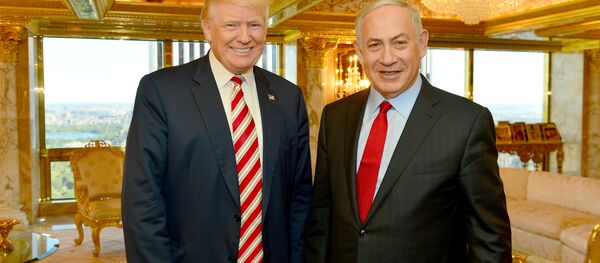The bill, sponsored by Prime Minister Benjamin Netanyahu's right-wing Likud party, would make Hebrew the sole official language of Israel. Arabic would continue to enjoy a "special status" with "its speakers [having] the right to language-accessible state services," according to Israeli newspaper Haaretz. Government services would be made available in Arabic, an availability which is not universal at this time.
"The State of Israel is the national home of the Jewish people, in which it realizes its aspirations for self-determination according to its cultural and historic traditions. The realization of national self-determination in the State of Israel is unique to the Jewish people," the bill reads. In addition to the issue of official languages, it also touches on Israel's Jewish character, anthem, symbols, and flag.
Avi Dichter, the bill's sponsor, said that the bill was necessary to "set in law our national identity while remaining a democratic state." It would be "a big step toward establishing our identity, not only universally, but mainly toward ourselves, the Israelis, to be a free nation in our land," he added.
The bill has passed the Foreign Affairs and Defense Committee and will now be considered before the general body. If the bill passes, it will amend the Basic Laws of Israel, the nation's de facto constitution.
Being that it came from his own party, Prime Minister Netanyahu's support for the bill is perhaps unsurprising. Speaking to JPost, the outspoken PM called the bill "the clearest answer to all those who are trying to deny the deep connection between the people of Israel and its land … there is no contradiction at all between this bill and equal rights for all citizens of Israel."
"I expect all Zionist parties to support it," he added. If his expectation is the case, then the bill would easily come into law: 101 of the 120 Knesset members belong to parties identifying as Zionist.
Ayman Odeh, head of the Joint List political alliance which comprises the four Arab-majority parties represented in the Knesset, called the bill an assault on minority rights that would "legally transform us into second-class citizens" if passed.
"The Israeli government continues to advance bills whose only purpose is the tyranny of the majority over the minority," he said in a statement. "Instead of building a shared future for all citizens of the state, the government is acting to destroy the status of the Arab population and exclude their culture and language."
Zehava Gal-On, chairwoman of the far-left "Socialist Zionist" Meretz party, which controls five of the Knesset's 120 seats, also came out against the bill. "The result of the Jewish State bill is clear. Jews will get preference over all other citizens, clearly violating human rights, democracy and the rights of the Arab minority in Israel," she said.
A similar bill in the Knesset made the rounds in 2012, one that would have demoted Arabic to a secondary language with no government protection, similar to English and Russian. The controversial bill, lambasted by both Arabic and left wing groups, did not pass into law.
However, the new bill is seen as more moderate than its predecessor. It still grants special privileges to Arabic speakers, and it specifies that "every resident of Israel, without distinction of religion or national origin, is entitled to work to preserve his culture, heritage, language and identity," and that "the state may allow a community, including members of the same religion or national origin, to have separate communal settlements."
Around 20 percent of Israelis are Arabs, and almost all of them speak Arabic. About 60 percent of Israeli Arabs are fluent speakers of Hebrew, according to a 2011 government survey, while less than 10 percent of Jews are fluent in Arabic, according to the Van Leer Jerusalem Institute. At present, the vast majority of signs in Israel are in both Hebrew and Arabic. Many, though not all, also are in English.





